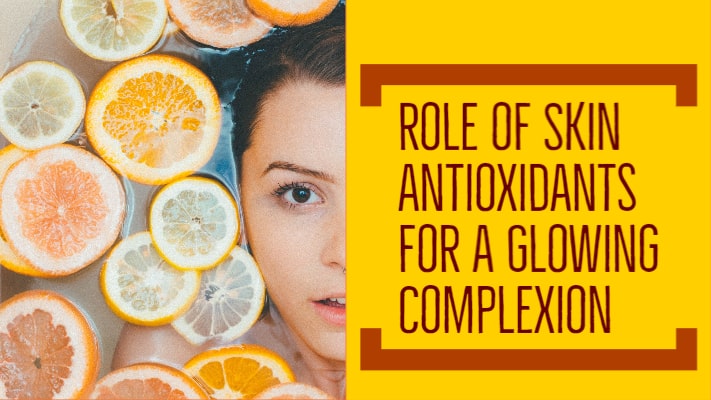Antioxidants have many health benefits. Now it seems they may be healthy for your skin too. Although there is no conclusive evidence that antioxidants slow down skin aging. With their ability to ‘capture’ free radicals, they may protect you from several diseases and give you a healthier, glowing complexion.
According to a Seattle-based nutritionist, Susan M. Kleiner, R.D., Ph.D., eating foods rich in antioxidants is beneficial for your health. “There’s no substitute for getting nutrients through food. The body absorbs and assimilates them far better than in supplement form.”
Food Guide Pyramid:
Kleiner suggests you should follow the U.S. Department of Agriculture’s Food Guide Pyramid. You should eat three to five servings of vegetables and two to four servings of fruit every day. Kleiner further suggests you should choose at least one citrus fruit, such as an orange, a grapefruit, or a tangerine for vitamin C. And eat at least two orange-yellow or leafy green vegetables every day to increase beta-carotene intake.
Eat Right for Younger Looking Skin:
When you eat a nutritious diet, it helps in making your skin healthy and younger-looking. If you drink a cup of orange juice and eat one raw carrot, you can get twice the Recommended Dietary Allowance (RDA) of vitamin C and beta-carotene. However, if you are on a low-fat diet, meeting the RDA for vitamin E may get harder to meet. As per Dr. Kleiner, you can add a couple of tablespoons of olive oil to your diet, or eat some nuts or seeds.
Recommended Dietary Allowance:
Here are the RDAs for three of the most common antioxidant nutrients: Vitamin C, Vitamin E, and beta-carotene.
Vitamin C:
RDA at least 60 mg. As an estimate, 1/2 cup orange juice contains 70 mg. Take plenty of citrus fruits, juices, and tomatoes as they are good sources of vitamin C. Eating whole fruit is better than drinking juice as fruits are full of fiber. Avoid heat-pasteurized juice or taking juice in glass containers. Light and heat may destroy some of the vitamin C.
Vitamin E:
RDA for Vitamin E is 8 mg for women / 10 mg. for men. As an estimate, 1 tablespoon of canola oil contains 9 mg of Vitamin E. Good sources of this vitamin include nuts, seeds and their oils. Also, wheat germ and fatty fish such as salmon, mackerel, halibut, and trout are a good source of Vitamin E. Instead of butter or margarine, use canola, olive, or another vegetable oil when cooking.
Beta-carotene:
There’s no established RDA for Beta-carotene. However, Dr. Kleiner recommends 5-6 mg. One carrot can give you 12 mg of Beta-carotene. Leafy green vegetables including broccoli, yellow and orange vegetables are all good sources. To get plenty of Beta-carotene, avoid snacks like popcorns and potato chips and opt for prepackaged, washed and peeled baby carrots.
Antioxidant vitamin supplements:
If you feel you are not getting sufficient nutrients through diet alone, you can take an all-in-one antioxidant vitamin supplement a day. But continue to have a healthy and balanced diet.
Conclusion:
There are several over-the-counter cosmetics containing antioxidants. But by themselves, they may not be effective enough. So it is best to ‘feed’ antioxidants to your skin with a healthy, antioxidant-rich diet for younger-looking skin.
With proper skin care, regular exercise, a healthy diet, adequate sleep, and plenty of water intake, you can enjoy better health, improved quality of life, increased stamina, with a younger-looking skin and a glowing complexion!






